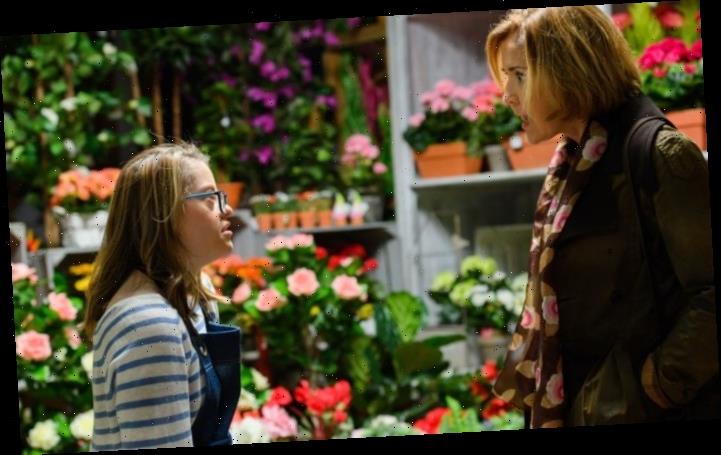Movistar Plus is betting once more on the re-branding of original Spanish content via “spin offs” wrapped in higher production values and an identity of their own. A bet which had worked previously on “Velvet Collection” and most likely will again with new production “Merlí: Sapere Aude.”
In the last few years, a clutch of Spanish series have managed to become global hits, still pretty small productions – judged by Hollywood standards – with solid core concepts and dynamic direction that greatly benefited from the distribution of the new platforms. Yet the case of “Merlí,” a Catalan series produced by Barcelona-based Catalan public broadcaster TV3, also broadcast on Atresmedia’s La Sexta and bought by Netflix – remains quite unique:
Rarely if ever has a show that blatantly deals with philosophical conundrums inside a class room become a world-wide phenomenon and created a fandom in almost all Spanish speaking countries.
After character Merlí’s death in Season 3, “Merli: Sapere Aude” follows the steps of his favorite student, Pol Rubio (Carlos Cuevas) who enters the Faculty of Philosophy in the University of Barcelona as a student. As we meet his new teacher, Maria Bolaño (María Pujalte), it is clear that even though the series feels like Merlí- it’s penned by the same creator Héctor Lozano and it has some of it’s original cast – “Merli: Sapere Aude” is a more mature series, that continues the same MO, narrating the daily struggles of the characters through the framework of philosophical ideas, yet widening the range of themes and the depth with which they are handled. As Pol Rubio grows, his dilemmas and inner conflicts grow as well.
“Sapere aude” is a phrase from the Roman poet Horace, meaning, literally, “dare to know.” Variety interviewed Héctor Lozano on the launch of the new season, made available by Movistar+ from Dec. 5.
In the three seasons of “Merlí,” each episode corresponds to a different philosophical issue which reinforce this episodic / them-focused structure. How has that treatment evolved now that it takes place at university?
Lozano: In “Sapere Aude,” I try philosophical concepts or ideas, especially about ethics, and I quote different philosophers about the same issues. I wanted to drive deeper, and also plumb other subject- logic and metaphysics, for instance. We follow the difficulties the protagonist has in understanding the propositional logic, a more complicated discipline of philosophy.
Where do you source the themes from and where do the narrative arcs come from or do you first delineate the stories of the characters and then the issues accompanying them?
The first thing is to create the characters. Some plots arise from them. The philosophical theme prompted by the argument come at the end.
Another special feature of the series is the fact that the end of the original series makes clear a future for Pol’s character. Did the fact the audience knows a point of arrival for Pol affected the writing in any way? How do you handle the viewer’s expectations in the present?
The future we know about Pol is 7 years later. In all this time many things can happen. I wasn’t bound at all. Pol could have fallen in love with eight more people and travelled around the world before finding Bruno again. The viewer is invited to follow Pol’s life, and part with the previous series. This is a new new series, it is not season 4 of “Merlí.” It’s “Sapere Aude.” It has the style of “Merlí,” but now its protagonist is Pol Rubio i, the point of view of the student. And Carlos Cuevas is fantastic. I love it!
“Merlí” ends with a very conclusive point that is the death of his pivotal character. Can tell us a little about the new professor of Philosophy – which I think is a fantastic character. How did you get to María Bolaño? What were you looking to find in that new role of teacher in contrast to the one we meet so well in Merlí?
I thought María could the new important teacher for Pol. She will be his mentor, but from a very different standpoint than Merlí. The relationship is not paternalistic, it is more distant, more mature, but necessary for both. María Pujalte is splendid for the character.
“Merlí: Sapere Aude” belongs to a group of new Spanish series that plays very well with slice of life drama. You’ve been working on this format since “Merlí’s” Season 1. What interests you about it? What would you like to achieve with this type of format?
In the “Merlí” format there are no murders, no bombs to deactivate, no missing children, no drug trafficking. Here I play with normal characters to whom normal things happen. That’s my difficulty, writing about what happens in a student’s day to day life, and not falling into extremes of drama or comedy. It’s drama with humor, that’s how I like to define it. Life is like that, drama and fun. I am an observer of life.
Source: Read Full Article


